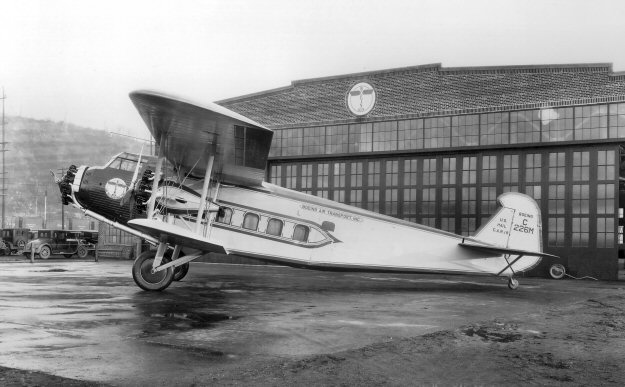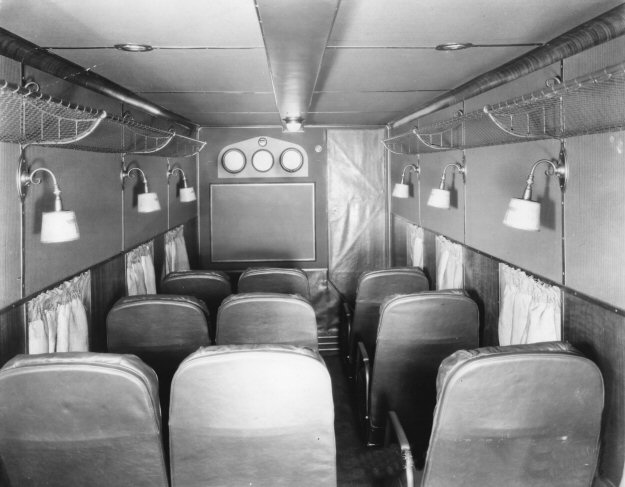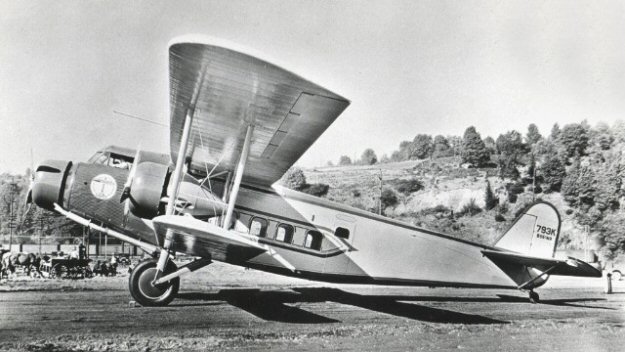Boeing Air
Transport Boeing 80-A (N)C226M
(c/n 1084)

So successful was the San
Francisco to Chicago route that BAT realized it needed a much
larger
aircraft than
the Boeing 40-B-4 to satisfy the increasing passenger loads.
The result was the model
80, (so named, I suppose, because
it was "twice as good" as a 40!). Originally an 18 passenger
airliner, some were later modified
(NC226M was one of them) into the model 80-A1 which had
room for 12 pax, but with a larger freight and mail
compartment. In 1930 when United Air Lines
came into being, the
transcontinental schedule was extended all the way to New York City. To
fly
the entire coast to coast route took 27 hours. In February
1929, Boeing Aircraft Corp merged,
with Pratt
& Whitney engines, into the United Aircraft & Transport
Corporation. Later acquisitions
under this umbrella holding
company were the Hamilton Propellor Company and Stearman Aircraft
Co. The operating line became known as the United Air Lines Group
in 1930. Boeing Air Trans-
port retained its autonomy until 1934 when the decree went out
(following the air mail fiasco) that
manufacturers of aircraft could no longer participate in the operation
of them. i.e. aircraft building
concerns were forced to divorce
themselves from their sister airline companies. The
interior shot
below of
the forward part of the Boeing 80-A cabin is courtesy of the John Cilio
collection. Just
love those over-the-window
reading lamps! The shot at the foot of the page is
another of the
manufacti=urer's images.

Boeing
80-A (NC)793K
(c/n 1081)



